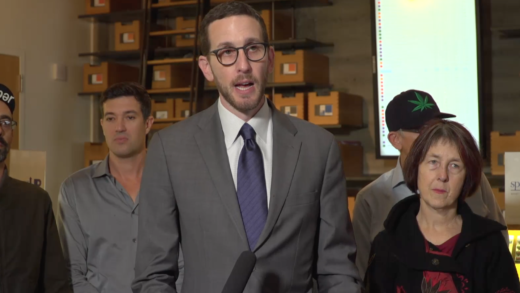California state Sen. Scott Wiener plans to reintroduce a bill Monday exempting providers who donate medical cannabis to critically ill, financially disadvantaged patients from paying state commercial pot taxes.
Gov. Jerry Brown vetoed a previous iteration of the bill, SB 829, in September, after Wiener first introduced it in May.
But Wiener is forging ahead once again because, he said, these so-called compassionate care programs, which have been around since the 1990s, don’t make any revenue. So they shouldn’t have to pay state pot taxes.
"This is really about access to medicine," Wiener said in an interview Thursday following the announcement of his new bill, as yet unnamed, at a San Francisco dispensary. "Poverty should not be a barrier to getting your medicine. We don't tax prescription drugs. Why should we tax medical cannabis?"
Since Proposition 64 (Adult Use of Marijuana Act) went into effect in January, California taxes all marijuana businesses -- both recreational and medical -- regardless of their profit levels.

